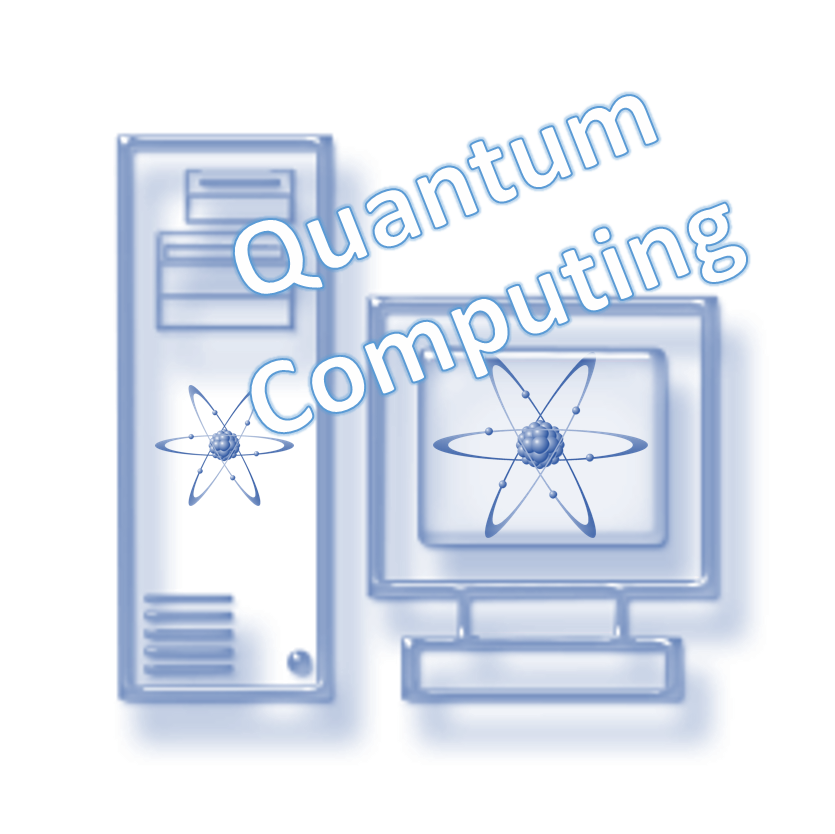Individuals old enough to remember the 1950s might recall the optimism of that decade. The world was getting back to work after fighting a devastating world war. People were building new houses, buying new appliances, and driving new cars. It was the dawn of the nuclear age, which filled people with both fear (i.e., the bomb) and hope (i.e., nuclear energy). Magazines like Popular Mechanics published stories about a future filled with wondrous possibilities. The Fifties are often depicted as the Golden Age of science fiction films. Those films inspired cartoons like the Jetsons which, in the early 60s, depicted flying cars and servile robots. Not everything predicted about the future during the post-war years actually became reality; but, we do have Dick Tracy-like watches on which we can answer telephone calls, rockets that can take people into space, and cars that can drive themselves. While reading articles about quantum computing, I get a sense of what people living during the 50s must have felt about the wondrous technological future. It’s so close, but always, it seems, just out of reach. Christopher Bernhardt, a professor of mathematics at Fairfield University, writes, “Today, quantum computing is in its infancy. Quantum computation incorporates some of the most mind-bending concepts from 20th-century physics. In the U.S., Google, IBM and NASA are experimenting and building the first quantum computers. China is also investing heavily in quantum technology.”[1] The types of “quantum computing” to which Bernhardt refers are very specialized computers and far from the programmable, universal quantum computer scientists are hoping to build.
Quantum computing’s mind-bending concepts
To say concepts involved in quantum computing are mind-bending actually understates the weirdness involved. In simple terms, a quantum computer is a computer that takes advantage of the fact that, at the quantum level, a quantum bit (aka qubit) can simultaneously be both a 0 and a 1 — this phenomenon is called superposition. The weirdness continues with the fact that a quantum particle can simultaneously appear to be in two places at once. This phenomenon — called entanglement — involves a pair of quantum particles linked together in a such a way that when one particle is altered its twin is instantaneously altered in exactly the same way regardless of how far apart the entangled particles may be. Professor Albert Einstein famously called entanglement “spooky action at a distance.” Because a qubit can simultaneously be both a 0 and a 1, quantum machines compute differently than traditional machines. James Norman explains, “Quantum computers can be game changers because they can solve important problems no existing computer can. While conventional computing scales linearly, QC scales exponentially when adding new bits. Exponential scaling always wins, and it’s never close.”[2] If you want to take a deeper dive into quantum computing, watch the following video. In the video, Professor Koen Bertels, head of the Quantum Computer Architectures Lab at Delft University of Technology, explains more about the potential power of quantum computing.
Is quantum computing the future?
If you remain befuddled about how quantum computers work, relax. Sumit Kumar Sharma, an Enterprise Architect at In2IT, asserts, “It is impossible to fully understand the potential for quantum computing.”[3] Rather than try to bend your mind around what quantum computing is, Sharma believes discussing what it could achieve is a better path to understanding. He writes, “There are three current focus areas: healthcare and medicine, security, and the ‘new Internet’.” He discusses each of those areas.
Healthcare and medicine. “In the healthcare space,” Sharma writes, “quantum computing opens up a new world of potential. The proteins and molecules that make up the human body, and also medicines, viruses, bacteria and pathogens, do not operate in binary, they are bound by the laws of quantum physics. … It makes sense to use quantum computers to build quantum simulation models that can far more accurately mimic the behaviors of these proteins and molecules. … Healthcare could be completely revolutionized, and deaths from diseases like cancer and AIDS, which have been difficult to treat and cure, could become something of the past.”
Cyber security. “Encryption is the cornerstone of digital security,” Sharma explains, “but encryptions are bound by the laws of binary, and as such, are not infallible. If security keys are lost or stolen, then data is placed under threat. In the world of quantum, encryption can be made so complex that it is, for all intents and purposes, unbreakable. Instead of using traditional encryption keys, quantum computers will use quantum encryption keys. Banks in particular are exploring the potential for quantum encryption, to secure electronic devices as well as information sharing and transactions.”
The ‘New’ Internet. According to Sharma, “This use case for quantum computing reads like something from a science fiction novel.” That’s because it involves entanglement (i.e., spooky action at a distance). “Once quantum computers are ubiquitous and quantum networks abound,” Sharma writes, “information could be shared without being transmitted. Collaboration takes on a whole new level and even the way in which we store information will change.”
Sharma then asks the million dollar question, “It’s coming … but when?” No one can really answer that question; so, Shelly Xuelai Fan (@ShellyFan), a neuroscientist turned journalist, asks a related question: “So why aren’t quantum computers more common already?”[4] The answer to that question is because quantum computers remain extremely sensitive to disturbances. Researchers are working to find the most stable qubits possible as well as other ways to make quantum computers less sensitive and error prone. Fan explains, “In a way, scientists are trying to build perfect machines out of imperfect parts. Quantum computers are extremely sensitive to perturbations, noise, and other environmental effects, which cause their quantum state to waver and disappear, an effect called decoherence.” She continues:
“To some experts, decoherence is the challenge that’s holding quantum computing back. Even with utmost care, noise can slip into calculations. Scientists can only keep quantum information for so long before they lose their fidelity, which limits the number of calculations possible to do in a row before everything collapses. The delicate nature of quantum computing is also why blindly adding qubits to a system doesn’t necessarily make it more powerful. Fault tolerance is a heated research area in quantum computing: logically, adding qubits could compensate for some of the problems, but millions of error-correcting qubits are likely needed to create a single, reliable data-carrying qubit (today we’re around 128). Smart algorithms, while still in their infancy, could also help.”
Bernhardt is confident the challenges will be overcome. In fact, he predicts, “[Quantum computing] enthusiasts will be able to play with quantum computers from their homes.” The question remains: When?
Concluding thoughts
“Ultimately,” writes Nella Ludlow (@nellaludlow), Director of the Data Analytics Program at Washington State University, “quantum computing promises to be a disruptive technology with such dramatic speed improvements that real tractable solutions to hard problems could be solved in hours and days.” Ludlow, like many other experts, believes quantum computing will change both the scientific and business landscapes. She concludes, “When you try to explain to your company why we should care about quantum computing, try quoting Max Plank, one of the rock stars of quantum physics, who said, ‘When you change the way you look at things, the things you look at change.’ The quantum computing tipping point is now.” Is quantum computing the future? Most experts best guess is: Yes.
Footnotes
[1] Christopher Bernhardt, “In the future, everyone might use quantum computers,” The Conversation, 26 March 2019.
[2] James Norman, “Quantum Computing Will Revolutionize Data Analysis. Maybe Soon,” Seeking Alpha, 14 March 2018.
[3] Sumit Kumar Sharma, “Quantum computing. The next big… wait, what is it really?” ITWeb, 2 April 2019.
[4] Shelly Fan, “Quantum Computing, Now and in the (Not Too Distant) Future,” Singularity Hub, 26 February 2019.
[5] Nella Ludlow, “Why Quantum Computing’s Time Is Now,” Forbes, 24 February 2019.





